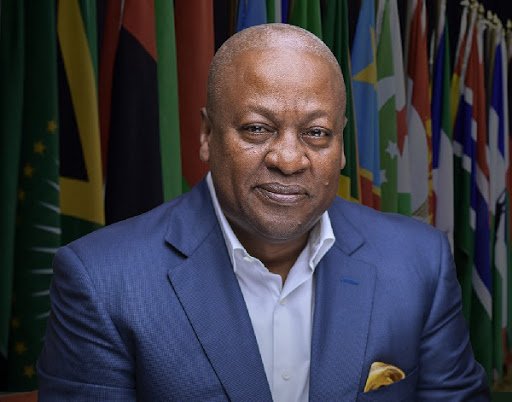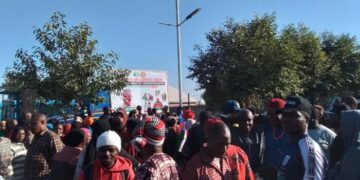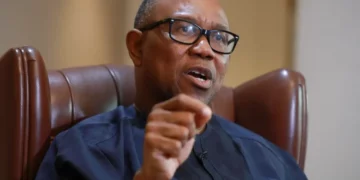Ghana’s former President, John Dramani Mahama, has returned as Ghana’s President-elect after three attempts.
Mahama won the country’s presidential election after his primary opponent, Vice President Mahamudu Bawumia, conceded defeat.
“The people of Ghana have spoken, the people have voted for change at this time, and we respect it with all humility,” Bawumia said in a news conference on Sunday.
The defeat in Saturday’s election ended the governing New Patriotic Party (NPP) under President Nana Akufo-Addo’s two terms in power. This period was marked by Ghana’s worst economic crisis in years, involving high inflation and a debt default.
Bawumia said he called Mahama of the National Democratic Congress (NDC) to congratulate him.
Earlier, NDC spokesman Sammy Gyamfi told reporters the party’s internal review of results showed Mahama won 56.3 per cent of the vote against 41.3 per cent for Bawumia. “It is very clear the people of this country have voted for change,” Gyamfi said.
According to the NPP’s internal tally of votes, the NDC won the parliamentary election.
Mahama, president of Ghana between July 2012 and January 2017, confirmed on X that he had received Bawumia’s congratulatory call after his “emphatic victory.”
Blaring horns and cheering, the 65-year-old’s supporters were already gathering and celebrating outside the party campaign headquarters in the capital, Accra.
During his campaign, he promised to “reset” the country on various fronts and tried to appeal to young Ghanaians.
His win marks a historic victory, making him the first president in the three decades of Ghana’s Fourth Republic – since the 1992 return to multi-party democracy – to reclaim the presidency after being voted out.
Ghana’s economic woes dominated the election after the gold and cacao producer experienced a default and currency devaluation crisis, which ended with a $3bn International Monetary Fund bailout.
On corruption, Mahama vowed during the campaign that he would create a new office tasked with scrutinising government procurement above a $5m threshold. He said unchecked procurement processes are a significant source of corruption.
However, Mahama also voiced support for the anti-LGBTQ bill passed by Ghana’s parliament in February, which is yet to be signed into law and has sparked international criticism.
Ghana’s election commission had said official results were likely due by Tuesday.
With a history of democratic stability, Ghana’s two main parties, the NPP and NDC, have alternated in power equally since the return to multi-party politics in 1992.




